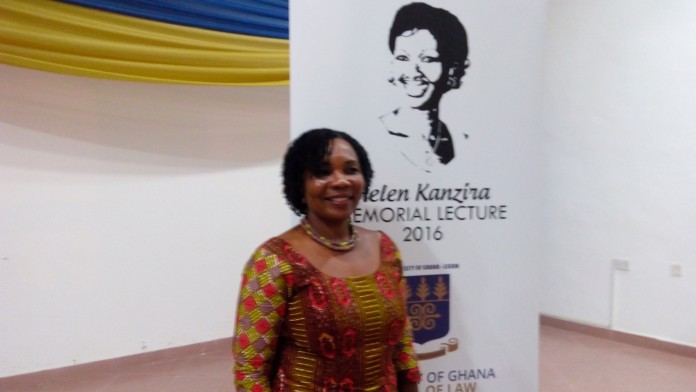‘Prioritize workplace safety, optimize employee potential’

Lawyer and gender advocate, Madam Bernice Sam has emphasized the legal and reputational risks businesses face if they fail to address workplace violence and harassment.
She highlighted a case involving a reputable commercial bank in Ghana, where a lawsuit over harassment led to significant legal costs and potential reputational damage.
“Litigation is one of the risks, and reputational damage is very important. Companies could suffer if such cases lead to negative publicity, potentially causing shareholders to distance themselves from the organization,” she said.
Sam also noted that a toxic work environment could drive talented employees away, underscoring the importance of creating a peaceful and respectful workplace that allows employees to optimize their skills and knowledge for the company’s benefit.
The seminar, organized by the Ghana Employers’ Association (GEA) with support from the Confederation of Norwegian Enterprise (NHO), focused on the prevention and elimination of workplace violence and harassment. About 50 employers attended the event in Tema, which underscored the importance of addressing these issues as a legal and ethical obligation and as crucial for maintaining a productive and positive work environment.
Mr. Eugene Abraham, Head of Research and Projects of the GEA, highlighted the severity of workplace violence and harassment in Ghana. He cited research from the 2016 Ghana Family Life and Health Survey, revealing that over 40% of women and 30% of men experienced violence and harassment at least once in their lifetime in the labour market. More recent data from the Ministry of Employment and Labour Relations showed that 72% of the workforce had encountered some form of violence or harassment at work, with third parties, co-workers, and supervisors being the main perpetrators.
Mr. Abraham reiterated the GEA’s dedication to supporting employers in creating safer workplaces, stating that the Association has taken proactive measures to combat workplace violence and harassment. “In collaboration with the NHO, a Violence and Harassment Programme has been institutionalized at the GEA, and workplace guidelines have been developed with support from the Bureau of Employers’ Activities of the ILO. These are urgent and strategic steps taken by the Association to support employers and continually raise awareness to free all workplaces in Ghana from violence and harassment,” he said.
The seminar also explored the broader impact of workplace harassment on employee morale and company culture. Businesses were encouraged to adopt robust anti-harassment policies and provide regular training to staff to recognize and report inappropriate behaviour. The event served as a platform for employers to exchange ideas and strategies on preventing workplace violence and harassment. Participants left with a better understanding of the importance of a safe work environment and the steps necessary to achieve it.
By addressing these issues head-on, Ghanaian businesses can not only protect their employees but also enhance their overall productivity and reputation, paving the way for a more inclusive and respectful work culture across the nation.




